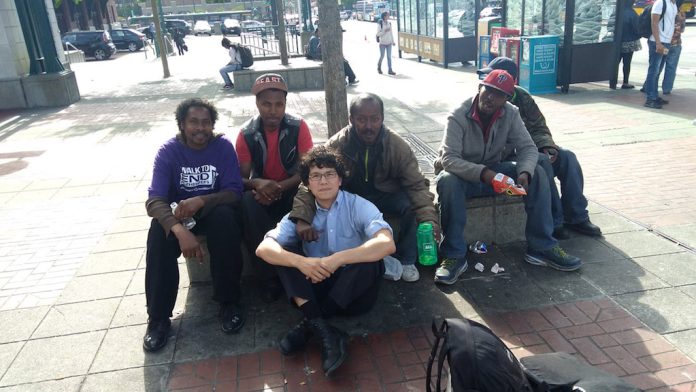Really quick, but very important–
The difference between popularity and fame, as I define those words, is that popularity has more to do with being known directly, from primary interactions with the person in question. Fame is when you read about whoever it is in a Newsweek editorial. That isn’t primary experience, but secondary or, more often, tertiary; and in those scenarios the truth can get hazy real fast.
I like being popular. I don’t like being famous. Because that’s when people start twisting your words, and the others who don’t know you start believing them. I was just alerted this morning by a rider who knows me that my recent interview on KIRO is being taken out of context and being used as weaponized fodder against Seattle’s homeless population and transit at large.
That wasn’t the idea, people.
When I stated, as linked in the audio and transcript of the full interview below, that 80 percent of my riders are non-destination passengers, I was careful to emphasize that I was referring explicitly to my anecdotal experience alone, and only during the time of the coronavirus outbreak that followed Jay Inslee’s stay-at-home order. I couldn’t have been more clear. Did I say this was a bad thing? Ah, the way assumptions tell more about the assumer than the speaker themselves… I also took time to make explicit that I had no pejorative intention, and that, as anyone familiar with me knows, I take great and humble pleasure in serving and being accepted by the homeless community. If you have taken even a passing interest in my work, none of this is news to you.
You can guess which parts the right-wing organizations left out. You can guess how much time they spent with my full interview, with my book or blog. I’m purposely not linking to them because I’m not going to further popularize views that advocate for suppression, prejudice, hate, and racism.
The idea I was attempting to articulate in the interview was that the question of transit during a virus outbreak is a complex one. That’s it, period point blank. Do I have answers? Of course not, and I chuckle at anyone who claims to during this time, except perhaps virologists and other medical experts. This is not the time for political backbiting and armchair quarterbacking. I’m not qualified to have an opinion on the decisions currently being made, and wish only to add to the discussion, not supplant it. I definitely wasn’t saying we should deny service to those in need, nor did I imply that anyone doesn’t deserve a ride. Guys, it’s me here. I’m Nathan. Doesn’t all that go without saying?
I assume goodness in people, and as I’ve stated before, it’s gotten me in hot water from time to time. I assume listeners would take a moment for the full interview, because I optimistically imagine they’re interested in hearing what I have to say in full, rather than cherry-picking quotes they can distort toward their own nefarious ends. I assume good intentions.
Please assume the same of me.
Full interview with Dave Ross here, including transcript.
Context helps; here’s another recent interview on similar subject matter: NPR: KUOW: The Friendly Bus Driver in Socially Distant Times(scroll down for my 11-minute segment)
Nathan Vass is an artist, filmmaker, photographer, and author by day, and a Metro bus driver by night, where his community-building work has been showcased on TED, NPR, The Seattle Times, KING 5 and landed him a spot on Seattle Magazine’s 2018 list of the 35 Most Influential People in Seattle. He has shown in over forty photography shows is also the director of nine films, six of which have shown at festivals, and one of which premiered at Henry Art Gallery. His book, The Lines That Make Us, is a Seattle bestseller and 2019 WA State Book Awards finalist.


